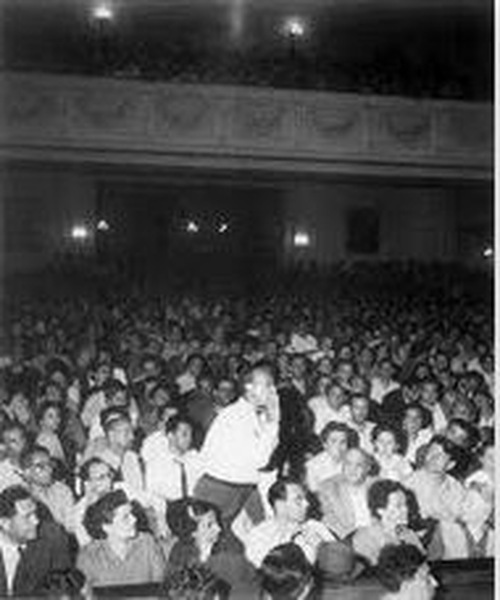Why Is the Chinese Communist Party So Afraid of Intellectuals?
(Minghui.org) Intellectuals in China have suffered tremendously since the Chinese Communist Party (CCP) usurped state power in 1949. They have been targeted again and again in a series of political campaigns, struggling under ideological suppression and subjected to both physical torture and mental torment. Why is the CCP so afraid of intellectuals, and why does it suppress them so heavy-handedly?
The Petofi Circles and Mao
After Joseph Stalin died in March 1956, a nationwide democratic movement swept across Hungary, opposing the Stalinist model of “total Sovietization” in Hungary. The movement directly targeted Mátyás Rákosi, then general secretary of Hungary’s ruling party, and the Soviet troops in Hungary.
Rákosi’s resignation in July 1956 motivated students and scholars to hold various forums to discuss problems in Hungary. Named after the famous Hungarian poet Petofi in the 19th century, these Petofi Circles attracted many intellectuals. They held seminars and lectures, and invited nationally renowned economists, writers, historians, educators, scientists, and philosophers to give speeches freely. These scholars analyzed the problems of the regime from different angles and put forward strategies to benefit the country and enrich the people. Their ideas won great support from the public, who followed them with great fervor and enthusiasm. Every seminar was a full house.
The activities of the Petofi Circles attracted people across Hungary and formed a huge social force. Other major cities outside the capital Budapest followed suit and organized their own Petofi Circles. Seeing that the shift in public opinion was about to turn into a political storm, the communist party ordered a ban on the club’s activities, but the awakened people had become unstoppable.
University students in Budapest proposed Sixteen Points to the government, including the withdrawal of Soviet troops, bringing Rákosi to justice, and confirmation of workers’ right to strike. Hundreds of thousands took to the streets in Budapest to protest. A few days later, Khrushchev compromised and ordered the Soviet troops to withdraw from Budapest.
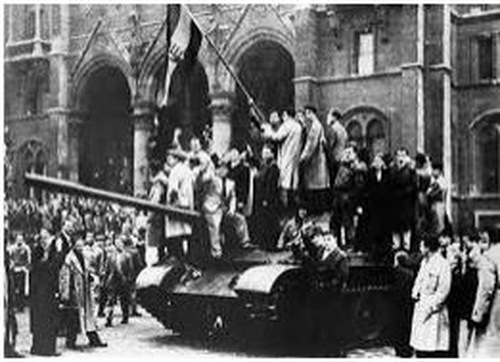 Suppressing the Hungarian Uprising in 1956
Suppressing the Hungarian Uprising in 1956
At that critical moment when the Hungarian people could see victory coming their way, Mao Zedong, who was far away in China, became furious and kept putting pressure on the Soviet Union and Khrushchev. He also sent a delegation to Moscow, demanding that the Hungarian people be suppressed by force. The Khrushchev clique finally accepted Mao’s suggestion and crushed the demonstrators. The bloody crackdown on the Hungarian uprising shocked the world.
Seeing the Petofi Circles in Hungary, Mao reinforced his suspicion of intellectuals and realized their incredible power in enlightening and gathering people around them. He also realized that intellectuals and the communist party’s totalitarian rule could not co-exist. This was a major reason he repeatedly suppressed intellectuals in China and why he was so fearful of the power of intellectuals. He was determined not to allow anything similar to the Hungarian Petofi Circles to occur in China.
Mao Hated Intellectuals for Their Uncensored Ideas
What happened in Hungary made Mao even more resolute in his destructive suppression of intellectuals. He mentioned many times later that the reason the Hungarian incident occurred in Eastern Europe was that the ruling communist party failed to stick to the doctrine of class struggle and that so many counter-revolutionaries were allowed to live. Mao once said that he was not worried about workers’ strikes or farmers’ petitions because he had experienced CCP cadres to effectively suppress them. Intellectuals were the ones he feared and hated most because they were capable of spreading uncensored ideas.
Although the CCP blocked news about the Hungarian uprising, the movement still had an impact in China. In January 1957, Mao mentioned in a speech that after a school in Shijiazhuang City, Hebei Province extended its schooling by one year, students, instigated by a small number of counter-revolutionaries, took to the streets in protest. They seized the local radio station and tried to create a Hungarian uprising in China. “Those people inside and outside the party who support the Polish-Hungarian incident are doing a great job!” Mao commented sarcastically. “They talk about Poznan and Hungary all the time. Now the ants are out of the hole and tortoises are all out in the open.”
Mao said at a CCP conference in 1957, “There are also all sorts of weird discussions among some professors, saying that they don’t want the Communist Party, the Communist Party cannot lead them, socialism is not good, and so on. They have such thoughts.”
“The film The Life of Wu Xun, have you seen it? It has a brush pen, several yards long, symbolizing the 'educated men.' When they sweep, it’s quite something. They want to come out now and probably want to sweep us. Does it indicate that they want to restore the old system?”
Wu Xun was a beggar in the Guangxu period of the Qing Dynasty. He spent years begging for money to eventually set up a school where indigent children could receive education free of charge. He did not keep even a cent for himself and never got married. He was hailed as a civil educator and commended by the Qing royal court. The Life of Wu Xun told how he begged for money to start a school. The film was very popular, and each show enjoyed a full house.
However, in May 1951, Mao published an article in People's Daily denouncing the film, calling it an anti-party poisonous weed and attacking Wu Xun as “a liberal whose literacy programs implied that revolution was unnecessary.” Consequently, the film was banned and the staff involved in the production was punished.
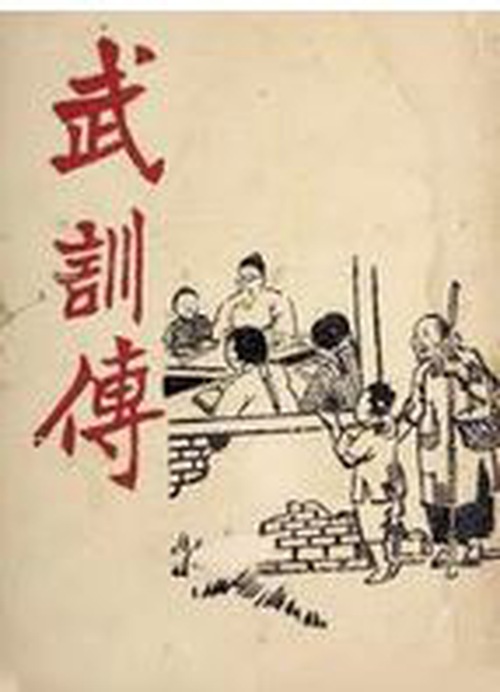 Wu Xun was criticized by the CCP.
Wu Xun was criticized by the CCP.
In 1957, Mao launched a “rectification” campaign to “entice the snakes out of their lairs.” At the beginning, Mao encouraged intellectuals to criticize the CCP bureaucracy, saying that such criticism was not only welcome but also necessary to help CCP cadres in their work. Innocent and naive intellectuals fell into the trap and voiced their opinions and suggestions. Later, Mao and the CCP turned around and launched the Anti-Rightist Movement to purge intellectuals who had shown the slightest sign of dissatisfaction about the conduct of CCP cadres. Consequently, hundreds of thousands were persecuted and sent to remote areas with harsh conditions to be “reformed through labor” (laogai). Many of them never made it back.
The CCP Removed Humanities Studies Out of Fear
From the Hungarian Uprising in 1956 to the disintegration of the Soviet Union in the 1990s, it has been shown again and again that the power of people waking up and learning the truth must never be underestimated. This is exactly what authoritarian regimes fear most.
In order to deceive and control the Chinese people, the CCP destroyed the essence of the traditional Chinese culture and values left from the republican era, and it copied the Soviet model in ruling the country. It carried out a systematic overhaul of the higher education system and removed certain humanities studies, such as sociology and logic. History textbooks were rewritten based on “materialist analysis of history,” and the entire education system was guided by the CCP’s Marxist theories, with class struggle as its main theme.
After the abolition of liberal studies, the renowned Tsinghua University was turned from a comprehensive university to a college of science and engineering, and an education system with an emphasis on science and technology over liberal arts came into being. The number of students in engineering, agriculture and forestry, teacher training, and medical science increased from 70,400 in 1949 to 138,400 in 1952, while those who specialized in political and law studies dropped from 37,682 to 3,830. Clearly, the CCP wanted students to become craftsmen and tools of the state apparatus, with little interest in history and society and next to nothing in logical thinking.
Brainwashing and Persecution of Intellectuals
At the same time, the CCP cruelly persecuted intellectuals, who were keen to maintain Chinese traditional culture, and forced them to reform their way of thinking. Even today, students from mainland China have been trained to refer to history from the so-called “materialistic historical point of view.” Such a structure of history education, totally different from that of the West, was largely attributed to Jian Bozan, a well-known historian and former vice president of Peking University. He combed through Chinese history in accordance with Mao’s Marxist-Leninist method and advocated for academics to serve proletarian politics. His history books such as “The Outline of Chinese History” have been used as general textbooks in university history departments across China, resulting in countless Chinese students being brainwashed.
However, even someone like Jian Bozan, who had contributed so much to the new system of history education under the guidance of the CCP, could not escape persecution under a zero-tolerance dictatorship. Mao advocated that “peasants’ uprisings and peasants’ wars alone were the real driving force for the development of history,” but Jian didn’t agree with this view and said that peasants’ uprisings should not be hailed too highly in the course of history. His view offended Mao, who said at an enlarged meeting of the Politburo on March 17, 1966, “My view is that we’d better take down people like Jian Bozan... they are feudal bureaucrats.” Soon afterwards, Jian was labeled as a “veteran anti-communist.” He was subjected to over a hundred denunciation meetings and forced to confess his “crimes.” When the pressure and pain was too much to bear, he committed suicide along with his wife.
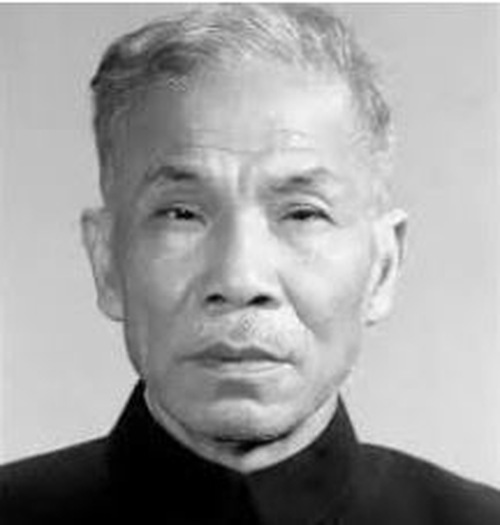 Jian Bozan, once used by the CCP, had to commit suicide in the end.
Jian Bozan, once used by the CCP, had to commit suicide in the end.
Many others suffered in similar ways. Pan Guangdan, an activist scholar in the early years of the Republic of China, was tortured to death during the Cultural Revolution. Fei Xiaotong, a sociologist who witnessed Pan’s death, criticized the fallacy that “intellectuals are fed by the Communist Party” and said emotionally, “Who said we are fed by the Communist Party! We have never been fed by the Communist Party, but the working people.” He was persecuted for 23 years and not released until after the Cultural Revolution, losing the prime time of his professional career.
The Anti-Rightist Movement and the Cultural Revolution destroyed a generation of intellectuals. For example, Chen Yinke, a most famous scholar in the former Republic of China, was persecuted to death. The well-known writer Lao She committed suicide by throwing himself into a lake when he could no longer cope with the never-ending “denunciation meetings.” Cao Yu, often regarded as China’s most important playwright, could not come up with any works in his later years due to repression of free-thinking.
Repentance–A Most Influential Film Prior to the Collapse of the Soviet Union
In the Stalin era, well-known works by Leo Tolstoy, Dostoyevsky, and Aleksandr Solzhenitsyn’s The Gulag Archipelago were all classified as banned books, and many were burned. After Khrushchev and Gorbachev came to power, some of these books reappeared, and people in the Soviet Union began to learn some truth about the ruling Communist Party of the Soviet Union (CPSU).
In 1987, the film Repentance, which was banned earlier for its semi-allegorical critique of Stalin, was released nationwide in the Soviet Union and became a significant cultural event before the disintegration of the CPSU. The film is completely fictitious, and the plot unfolds as follows: Varlam Aravidze, the mayor of a town in the 1930s, died. When he was young, he promised to build a “paradise on earth” for the people, but after he was in power, he began to trample and abuse those who supported him in the early days. In his later years, he became so decrepit and muddleheaded that he even wanted to shoot down the sun. He put his friend, an outspoken artist named Sandro, into a concentration camp, where he eventually died. Varlam was also responsible for the deaths of many others.
Many years later, Sandro's daughter Katevan tracked down how her father had died and decided to take revenge. After Varlam’s funeral, Katevan dug up the corpse and propped it up against a tree in Varlam’s son’s backyard. After the corpse was reburied, she did it again. Katevan was later arrested. She defended herself by exposing Varlam’s wrongdoings, which shocked everyone who knew him. Varlam’s grandson committed suicide after learning of his grandfather’s crimes, and his son, who had defended his father earlier, dumped his corpse off a nearby cliff. The film reminded people of the brutal tyranny of Stalin.
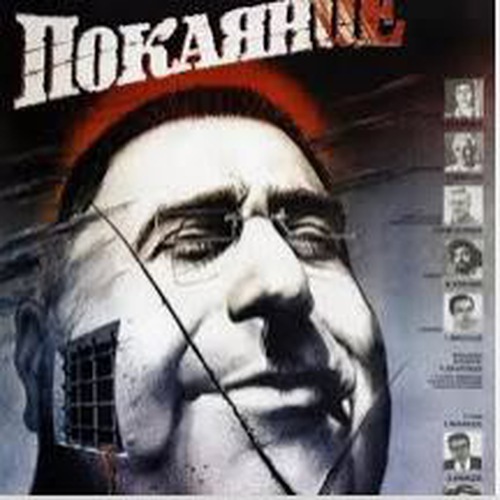 The film Repentance targeted its critique at Stalin.
The film Repentance targeted its critique at Stalin.
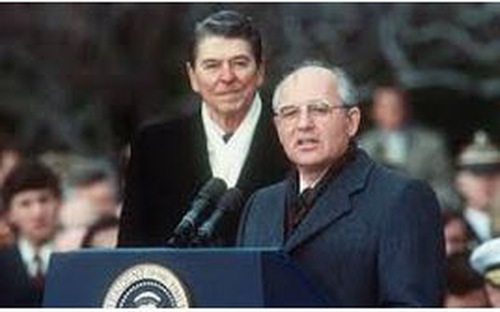 Gorbachev finally abandoned communism.
Gorbachev finally abandoned communism.
By then, Gorbachev had been in power for two years and many people knew that Gorbachev's grandfather and maternal grandfather had both been jailed during the Stalin era, and it was impossible that he held no objection to Stalin. The situation in the Soviet Union and around the world at that time also required him to take a more open and relaxed attitude.
At a meeting of the Central Committee of the CPSU in January 1987, Gorbachev announced that he would carry out economic and political reforms. A month later, he told reporters in the Kremlin that the Soviet Union would fill the “gap in history” and that the truth of history would be revealed.
The film Repentance caused a sensation across the Soviet Union not only because it publicly condemned the evil of totalitarianism but also because it encouraged tens of thousands of Soviet people to reflect upon the source and root cause of the evil. For the first time, the film exposed things that the CPSU had always concealed from the public, sowing the idea in people’s hearts: We can no longer live like this.
After the disintegration of the Soviet Union, a reporter interviewed the film's director Tengiz Abuladze and asked him why he wanted to make such a film. He asked back, “Isn't this our responsibility?”
The CCP Continues to Poison the Minds of Young Students
When Stalin was in power, he personally acted as editor-in-chief and compiled a book Concise Course on the History of the Soviet Communist Party, which was also used as a reference by the CCP after 1949 when it compiled textbooks on Soviet history for Chinese students.
Upon entering the 21st century, the book A History of Russia: The 20th Century: 1894-2007, edited by Andrey Borisovich Zubov, was used as the history textbook for Grade 11 (second year in senior high school) in Russia. The book restored historical truth and accused the Soviet Union established by Lenin of being a “hell on earth.” The book has completely turned things around based on truth and facts, and Lenin, once hailed as a great proletarian revolutionary leader, was bitterly despised and rejected by the people.
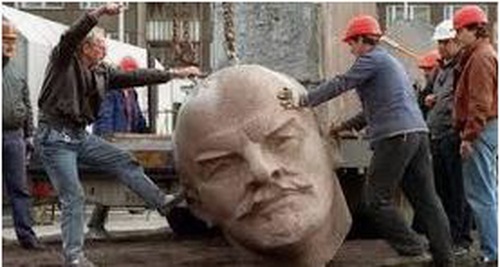 Lenin’s statues were pulled down one after another.
Lenin’s statues were pulled down one after another.
The CCP, on the other hand, still uses textbooks compiled during the Anti-Rightist Movement and the Cultural Revolution. Such teaching materials and books are filled with the CCP’s doctrines and have brainwashed generations of Chinese people.
In the past few years, however, especially after Nine Commentaries on the Communist Party was published in 2004, many people have recognized the violent and deceptive nature of the CCP. Over 360 million have agreed to renounce their current and former memberships in the CCP and its junior organizations, namely the Communist Youth League and the Young Pioneers.
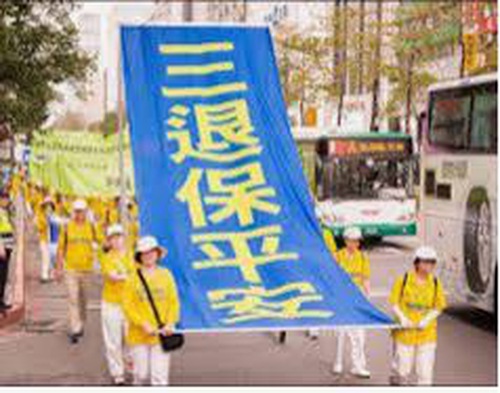 More than 360 million Chinese have quit the CCP and its affiliated organizations.
More than 360 million Chinese have quit the CCP and its affiliated organizations.
As the world becomes more clear on what the CCP is after suffering from the consequences of its cover-up and disinformation campaigns in the coronavirus pandemic, China will likely become a better place for its people and the entire world.
